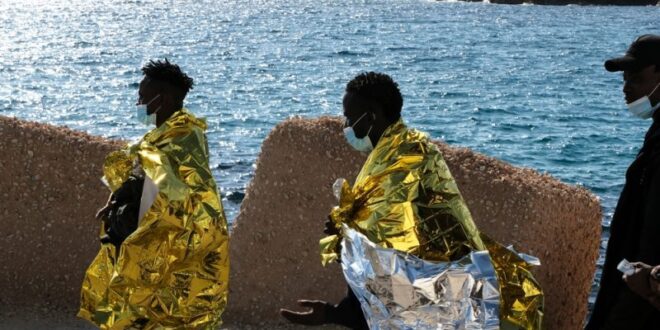The government and associations are at odds with dealing with the recent sharp increase in migrant crossings, like the fivefold increase in Trieste between 2021 and 2022, with the first favouring expulsions while the other advocates for greater redistribution across the country.
On 3 January, the prefect of Trieste, Annunziato Vardè, pointed out that the number of migrants who entered Italy through the Trieste border in 2022 had increased fivefold compared to the previous year.
They rose from 1,194 immigrants in October-December 2021 to 5,690 in the same period in 2022. The numbers include immigrants who entered Italy illegally and were tracked down by the authorities and those who spontaneously presented themselves to the police once they entered the country.
“Friuli-Venezia Giulia has been under pressure for too many years now due to migratory flows from the Balkan route”, Senator Marco Dreosto (Lega/ID) told EURACTIV Italy.
“Thanks to minister Matteo Piantedosi’s change of pace, we are finally back to talking about readmissions, which – I want to underline – are a legitimate tool that needs to be reactivated and strengthened”, he added.
But Gianfranco Schiavone, president of the Italian Solidarity Consortium-Refugee Office, an association that coordinates the reception system in Trieste, disagrees.
Informal readmissions “are a mechanism to prevent people from applying for international protection at the Slovenian border and readmit foreigners who were denied access”, Schiavone told EURACTIV Italy, pointing to them infringing the rule of law principle as per a Court of Rome ruling in January 2021.
Schiavone denies that the migrant emergency is due to the excessive number of entries and points the finger at the government, which he accuses of not having provided an adequate plan for redistributing the arriving people on the national territory.
“Transfers from Trieste to the rest of the territory instead of increasing in correspondence with an increase in arrivals have even decreased compared to previous years”, he denounced.
“There is a very serious political responsibility on the Italian side (…) the Italian government does not publish the entry data of the Balkan route and (Minister Piantedosi) has said everything and the opposite of everything in recent months”, he added, denying the findings reported by Trieste Prefect Vardè.
The direct consequence of this situation, says Schiavone, is that hundreds of people remain on the streets.
“Italians have voted, asking for more security in the cities and stricter controls of migratory phenomena. Italy is a serious country where we want to restore legality, in peace with the ICS and all the other NGOs fanatical about reception at all costs”, Senator Marco Dreosto (Lega) told EURACTIV Italy in response to Schiavone’s statements.
Piantedosi was in Friuli-Venezia Giulia recently, and the region’s governor, Massimiliano Fedriga (Lega), stated that the common goal agreed with the ministry is “to limit the presence of migrants on the regional territory as much as possible”.
On the so-called “informal readmissions” of migrants irregularly crossing Italy via Slovenia, Piatedosi reiterated the legitimacy of such procedures and stressed the government’s willingness to strengthen cooperation between the Italian and Slovenian police forces.
“Slovenia is a European country with deep democratic roots and an internal order in line with other EU nations that is perfectly capable of protecting civil rights, so there are no reasons to oppose readmissions to the neighbouring republic”, Fedriga added.
Stability in the Balkans
On 24 January, the conference ‘Italy and the Western Balkans: growth and integration’ was held in Trieste, organised by the Foreign Ministry on the initiative of Minister and Vice-President Antonio Tajani (FI/EPP) to promote Italy’s role in the Western Balkans and the region’s European integration process.
“The stability of the Western Balkans region is crucial, also because migratory flows from Turkey pass through that area, and it is important to avoid illegal immigration”, Tajani said on the sidelines of the conference.
The government led by Giorgia Meloni is looking to the Balkans for investment opportunities and in the larger framework of bilateral agreements with migrants’ countries of origin and transit countries such as Slovenia.
“Italy’s new protagonism in the Western Balkans is also aimed at trying to stem illegal migration flows on this route and stop illegal migrants outside EU borders”, Senator Dreosto told EURACTIV Italy.
“This is both to return to a system of legality and greater security in our cities and to fight all those human trafficking organisations that get rich behind people’s backs”, he added.
 Eurasia Press & News
Eurasia Press & News



